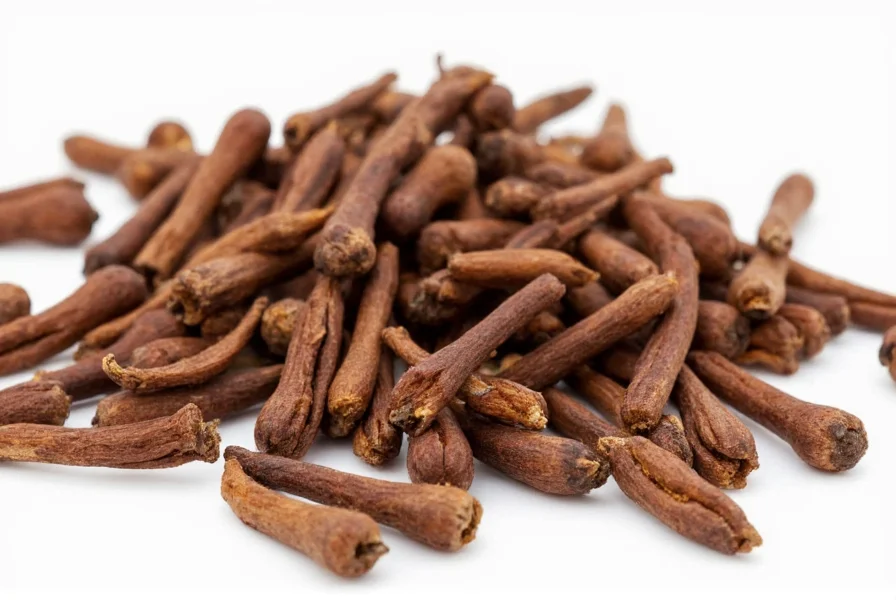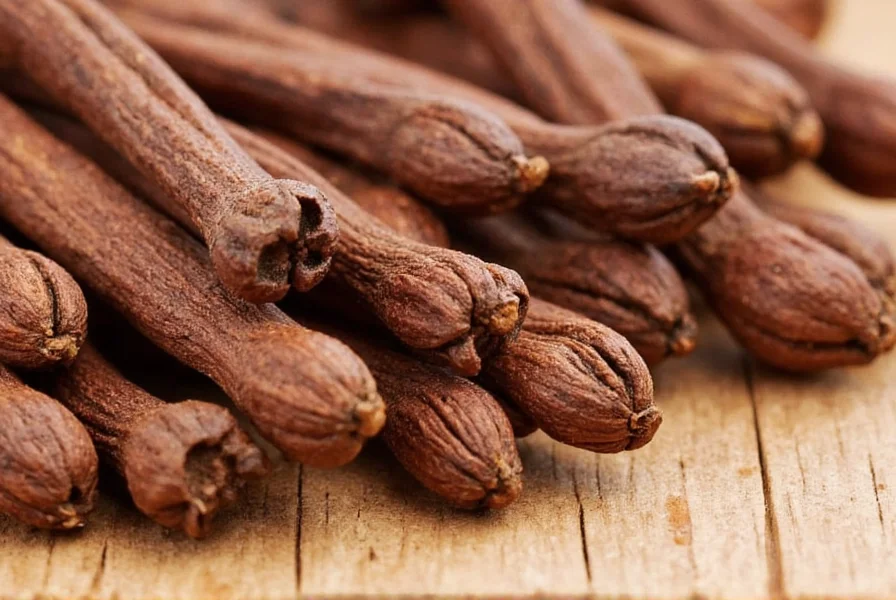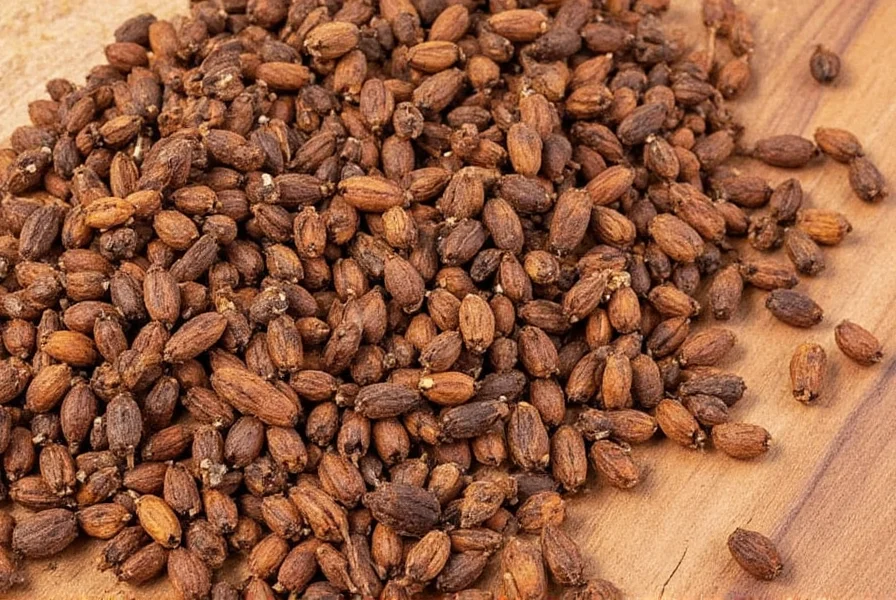Whole cloves spice represents one of the world's oldest and most versatile spices, with a history spanning thousands of years across multiple continents. Unlike their ground counterpart, whole cloves maintain their potent flavor and aromatic compounds for significantly longer periods, making them preferred by professional chefs and home cooks seeking maximum flavor impact in their culinary creations.
Botanical Origins and Historical Significance
Native to the Maluku Islands in Indonesia, whole cloves spice comes from an evergreen tree in the Myrtaceae family that can grow up to 40 feet tall. The name "clove" derives from the Latin clavus, meaning "nail," perfectly describing their distinctive shape. Historical records show cloves were highly valued in ancient Chinese, Indian, and Middle Eastern cultures, often worth more than their weight in gold during medieval European trade.
Traditional harvesting occurs when the flower buds transition from green to pink but before they open. Workers hand-pick these buds, then sun-dry them until they turn dark brown. This careful process preserves the essential oils that give whole cloves spice its characteristic aroma and flavor profile.
Physical and Flavor Characteristics
Whole cloves measure approximately 1-2 cm in length with a bulbous head and slender stem. Their complex flavor profile features:
| Characteristic | Description |
|---|---|
| Aroma | Warm, spicy, slightly sweet with medicinal notes |
| Taste | Intensely aromatic, initially sweet then warming and slightly bitter |
| Essential Oil Content | 15-20% (primarily eugenol) |
| Shelf Life (properly stored) | 2-3 years |
The high eugenol content (70-90% of essential oil) explains both the therapeutic properties and potent flavor of whole cloves spice. This compound interacts with taste receptors to create that distinctive warming sensation without actual heat.

Culinary Applications of Whole Cloves
Chefs prefer whole cloves spice over ground cloves for specific applications where controlled flavor infusion matters. Unlike ground cloves that disperse throughout a dish, whole cloves can be strategically placed and later removed, providing nuanced flavor without texture issues.
Common culinary uses include:
- Simmering in liquids: Added to broths, stocks, and poaching liquids where they infuse flavor without creating sediment
- Rice and grain dishes: Pressed into onion halves or embedded in rice for subtle flavoring
- Baking applications: Studded into hams, used in spice blends for gingerbread and pumpkin pies
- Infused beverages: Essential in chai tea, mulled wine, and spiced cider recipes
- Pickling and preserving: Added to vinegar-based pickling solutions for complex flavor
When using whole cloves in recipes, remember they deliver more concentrated flavor than ground cloves. A general conversion is 1 whole clove equals approximately 1/4 teaspoon ground cloves, though this varies based on freshness.
Whole Cloves vs Ground Cloves: Key Differences
Understanding the distinction between whole cloves spice and ground cloves is crucial for optimal culinary results:
- Flavor intensity: Whole cloves maintain potency significantly longer; ground cloves lose 75% of volatile oils within 6 months
- Application control: Whole cloves can be strategically placed and removed; ground cloves disperse completely
- Texture considerations: Whole cloves must be removed before serving; ground cloves incorporate seamlessly
- Shelf life: Properly stored whole cloves last 2-3 years versus 6-12 months for ground cloves
For the most vibrant flavor in long-cooking dishes like stews and braises, whole cloves provide superior results. However, for baking and rubs where even distribution matters, ground cloves work better.
Proper Storage Techniques
Maximizing the shelf life of whole cloves spice requires proper storage:
- Store in airtight glass or metal containers away from light
- Maintain stable temperature (below 70°F/21°C is ideal)
- Avoid humidity exposure which accelerates flavor loss
- Keep away from strong-smelling foods that cloves may absorb
Test clove freshness by squeezing a bud between your fingers—if it feels brittle and releases aromatic oil, it's still potent. Whole cloves that have lost potency become dry, crumbly, and lack strong aroma. Properly stored whole cloves shelf life typically exceeds two years, while ground cloves degrade much faster.
Health Considerations and Traditional Uses
Throughout history, cultures worldwide have utilized whole cloves spice for various wellness applications. Modern research supports some traditional uses while highlighting important safety considerations.
Eugenol, the primary compound in cloves, demonstrates antimicrobial properties that explain historical use as a natural preservative. Dental applications have the strongest scientific backing, with clove oil commonly used in temporary toothache remedies due to its numbing effect.
When considering health benefits of whole cloves, note that most research uses concentrated extracts rather than culinary amounts. While moderate culinary use is generally safe, excessive consumption may cause:
- Oral tissue irritation
- Blood thinning effects (caution for those on anticoagulants)
- Potential liver concerns at extremely high doses
As with any botanical, consult healthcare providers before using cloves therapeutically, especially for children, pregnant women, or those with medical conditions.
Selecting Quality Whole Cloves
When buying whole cloves spice, look for these quality indicators:
- Appearance: Uniform dark brown color with no signs of mold or discoloration
- Texture: Firm buds that don't crumble when gently squeezed
- Aroma: Strong, penetrating scent when crushed slightly
- Oil content: Should leave oily residue when rubbed between fingers
- Origin: Madagascar, Indonesia, and Zanzibar produce highest quality cloves

Avoid cloves that appear dusty (indicating age) or have lost their nail-like shape. Reputable spice merchants typically provide harvest dates—choose the most recent for optimal flavor. For the best whole cloves spice experience, purchase from retailers specializing in fresh spices rather than general grocery stores where turnover may be slower.
Conclusion
Whole cloves spice remains an indispensable ingredient in kitchens worldwide, offering unique flavor dimensions that ground cloves cannot replicate. Their versatility across sweet and savory applications, extended shelf life, and controlled flavor infusion make them worth keeping in any well-stocked spice collection. By understanding proper selection, storage, and usage techniques, cooks can maximize the culinary potential of this ancient spice while appreciating its rich historical significance.
Frequently Asked Questions
Can you substitute ground cloves for whole cloves in recipes?
Yes, but with important considerations. The general conversion is 1 whole clove equals approximately 1/4 teaspoon ground cloves. However, ground cloves disperse throughout dishes while whole cloves can be strategically placed and removed. For long-cooking dishes, whole cloves provide more controlled flavor infusion. Remember that ground cloves lose potency faster, so adjust quantities based on freshness.
How do you properly use whole cloves in cooking?
For optimal results when using whole cloves in cooking, embed them in onions or citrus fruits for even flavor distribution in liquids, or stud them directly into meats. Always remove whole cloves before serving as they remain hard and could damage teeth. In rice dishes, place 3-4 cloves atop the rice before cooking, then remove before fluffing. For baking, whole cloves work best when pressed into fruits or meats rather than incorporated directly into batters.
What's the shelf life of properly stored whole cloves?
When stored in an airtight container away from light and moisture, whole cloves shelf life typically ranges from 2-3 years while maintaining optimal flavor. This significantly exceeds ground cloves, which lose most volatile compounds within 6-12 months. Test freshness by squeezing a clove—if it feels brittle and releases aromatic oil, it's still potent. Cloves that have degraded become dry, crumbly, and lack strong aroma.
Are there any safety concerns with consuming whole cloves?
Culinary amounts of whole cloves spice are generally safe for most people. However, the primary compound eugenol can cause oral tissue irritation in sensitive individuals. Excessive consumption may have blood-thinning effects, so those on anticoagulants should consult healthcare providers. Never swallow whole cloves as they can damage teeth or cause choking. Always remove whole cloves from dishes before serving. Therapeutic use of concentrated clove oil requires professional guidance.
What distinguishes high-quality whole cloves from inferior ones?
Quality whole cloves spice should have uniform dark brown color, firm texture that doesn't crumble, and strong aromatic scent when crushed. They should leave oily residue when rubbed between fingers, indicating high essential oil content (15-20%). Avoid cloves that appear dusty, have lost their nail-like shape, or lack strong aroma. Reputable merchants provide harvest dates—choose the most recent. Madagascar, Indonesia, and Zanzibar produce the highest quality cloves with optimal eugenol content.











 浙公网安备
33010002000092号
浙公网安备
33010002000092号 浙B2-20120091-4
浙B2-20120091-4